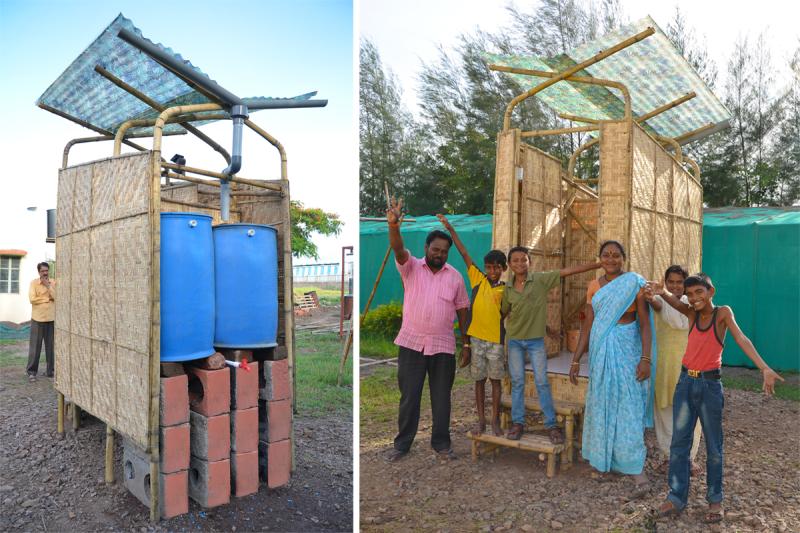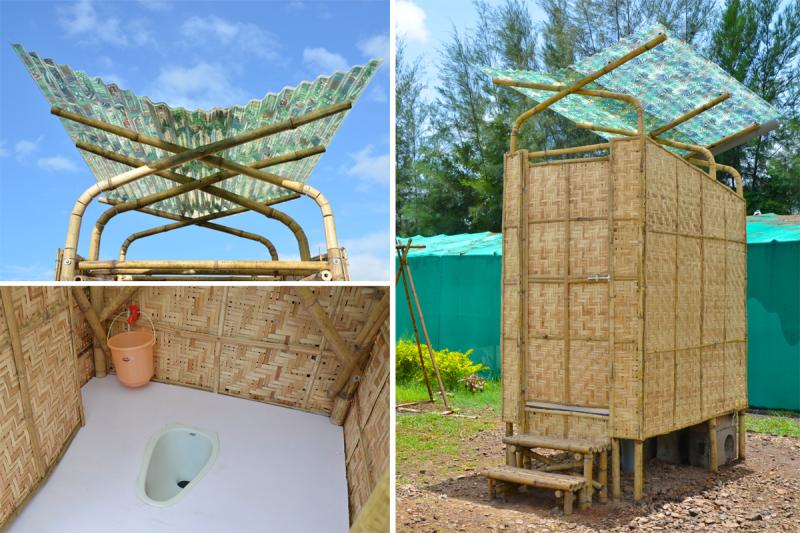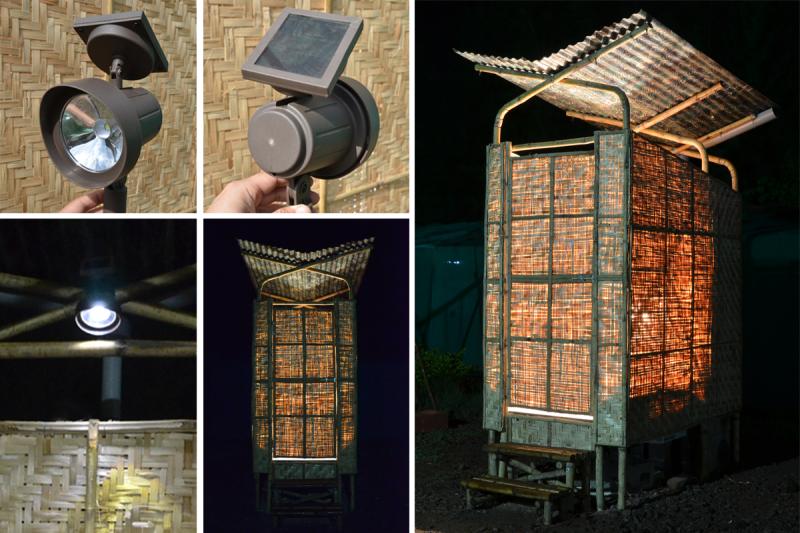Sustainable Sanitation System for Rural Communities in India and Beyond
George Chow
MFA Design Research and Development, 2015
Abstract:
The sustainable sanitation system is designed to provide inexpensive, safe, basic sanitation for rural Indian people. The system features a bio-digester which turns human excreta, cow manure and kitchen food scraps into high quality fertilizer while producing methane as a by-product of natural decomposition. The methane can be used as fuel for cooking, lighting, and producing electricity. Over 100 gallons of rain water can be collected from the roof and utilized for flushing the toilet and rinsing hands. A solar light charges during the day and automatically illuminates the latrine at night. The system is built with sustainable, local materials (bamboo) and local manufacturing methods so that it can be produced in India and provide jobs for rural Indian people. The total cost of the system is about $100 which is much less than the cost of a typical single concrete bathroom in India which is about $800.




George Chow is a product designer completing an MFA in Design Research and Development at The Ohio State University in May 2015, and an alumnus of Carnegie Mellon University with a BFA in Industrial Design and a minor in Jazz Performance (Drums). George has been working professionally as a product designer since 1999, and has taught design as an adjunct faculty member at Columbus College of Art and Design and OSU.
